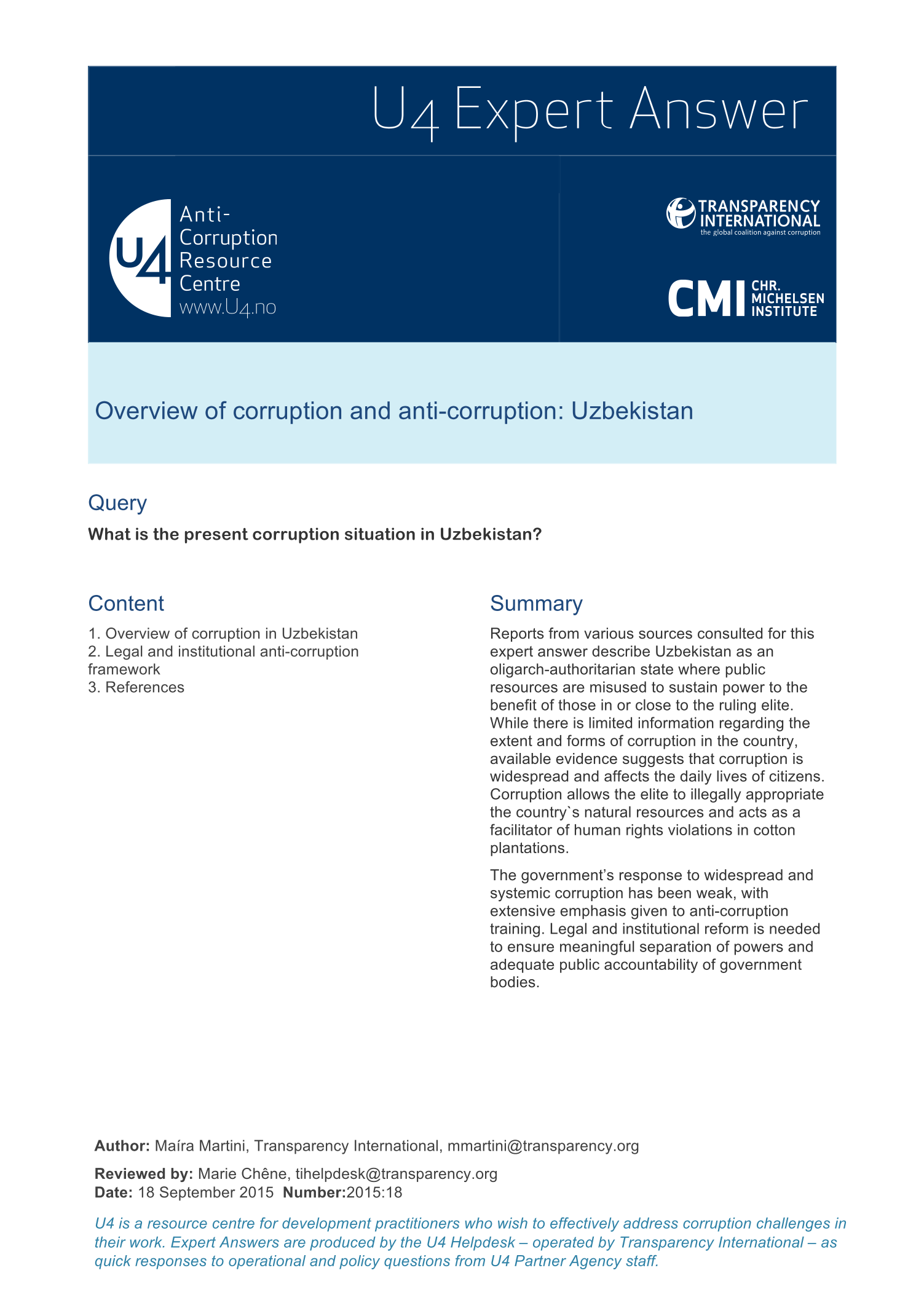U4 Helpdesk Answer
Overview of corruption and anti-corruption: Uzbekistan
Reports from various sources consulted for this expert answer describe Uzbekistan as an oligarch-authoritarian state where public resources are misused to sustain power to the benefit of those in or close to the ruling elite. While there is limited information regarding the extent and forms of corruption in the country, available evidence suggests that corruption is widespread and affects the daily lives of citizens. Corruption allows the elite to illegally appropriate the country`s natural resources and acts as a facilitator of human rights violations in cotton plantations.
The government’s response to widespread and systemic corruption has been weak, with extensive emphasis given to anti-corruption training. Legal and institutional reform is needed to ensure meaningful separation of powers and adequate public accountability of government bodies.

Cite this publication
Martini, M. 2015. Overview of corruption and anti-corruption: Uzbekistan. U4 Expert Answer 2015:18
Disclaimer
All views in this text are the author(s)’, and may differ from the U4 partner agencies’ policies.
This work is licenced under a Creative Commons Attribution-NonCommercial-NoDerivatives 4.0 International licence (CC BY-NC-ND 4.0)


